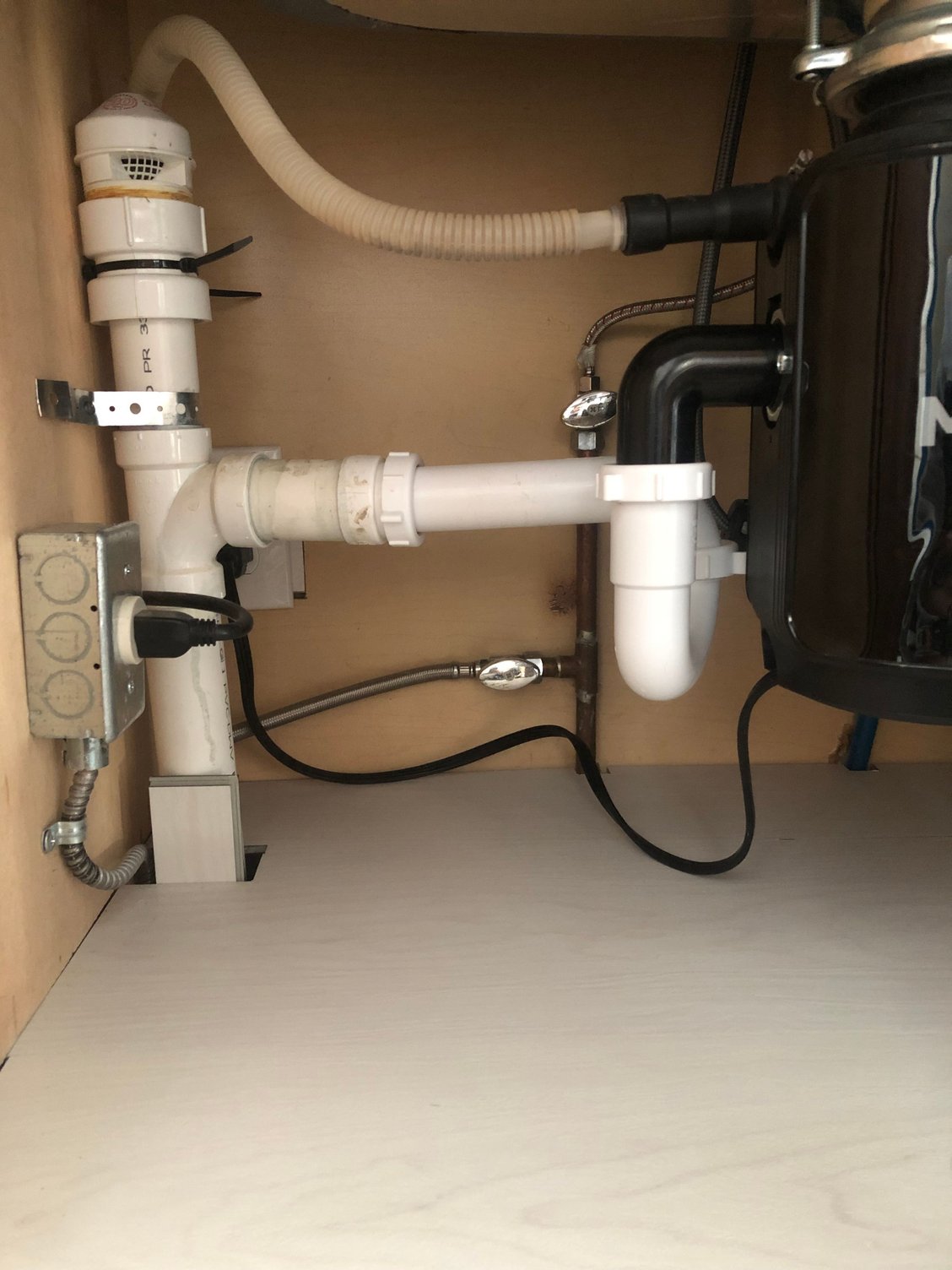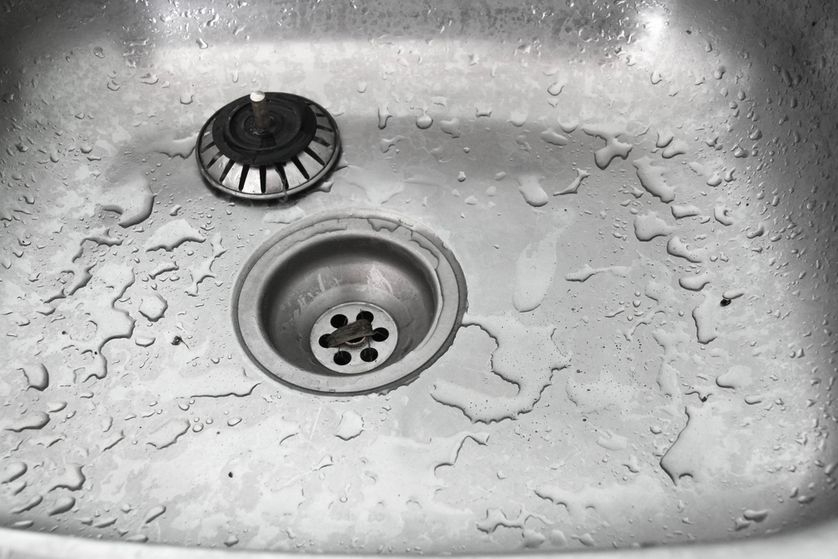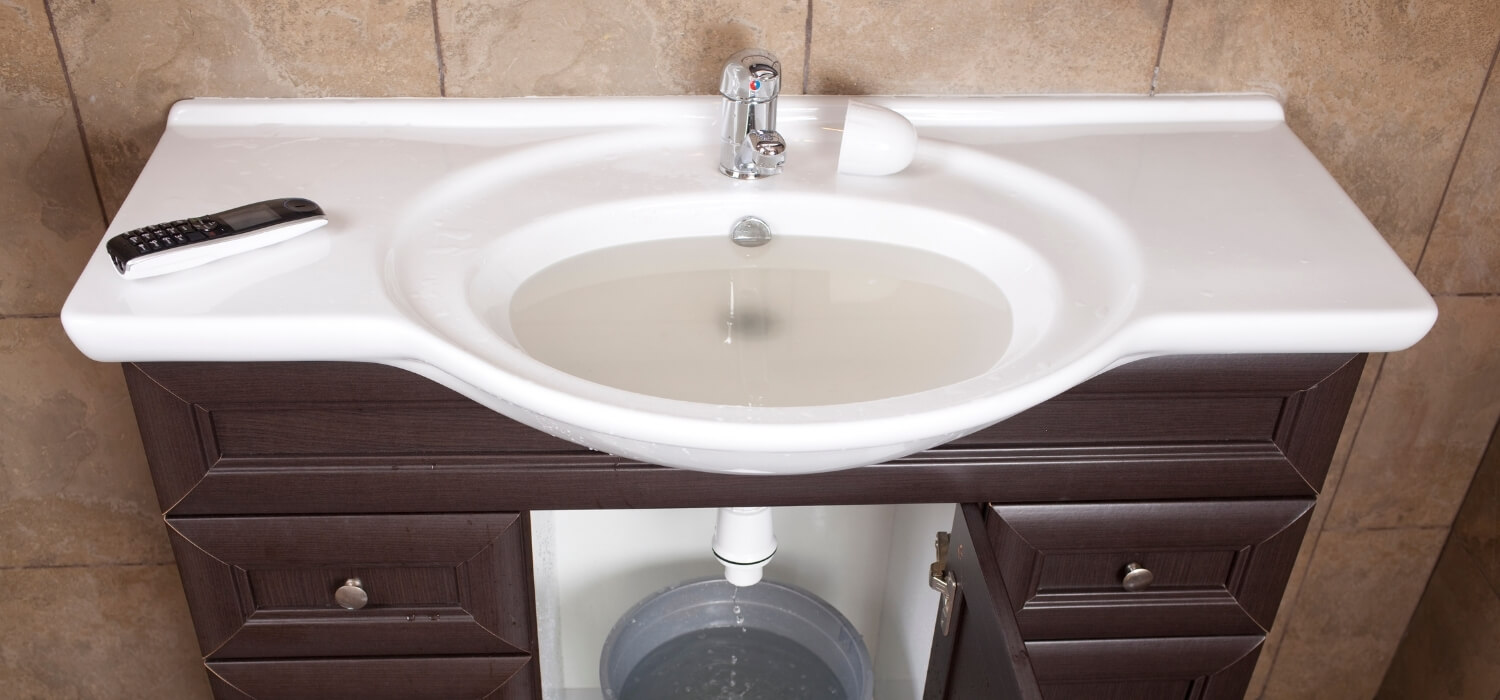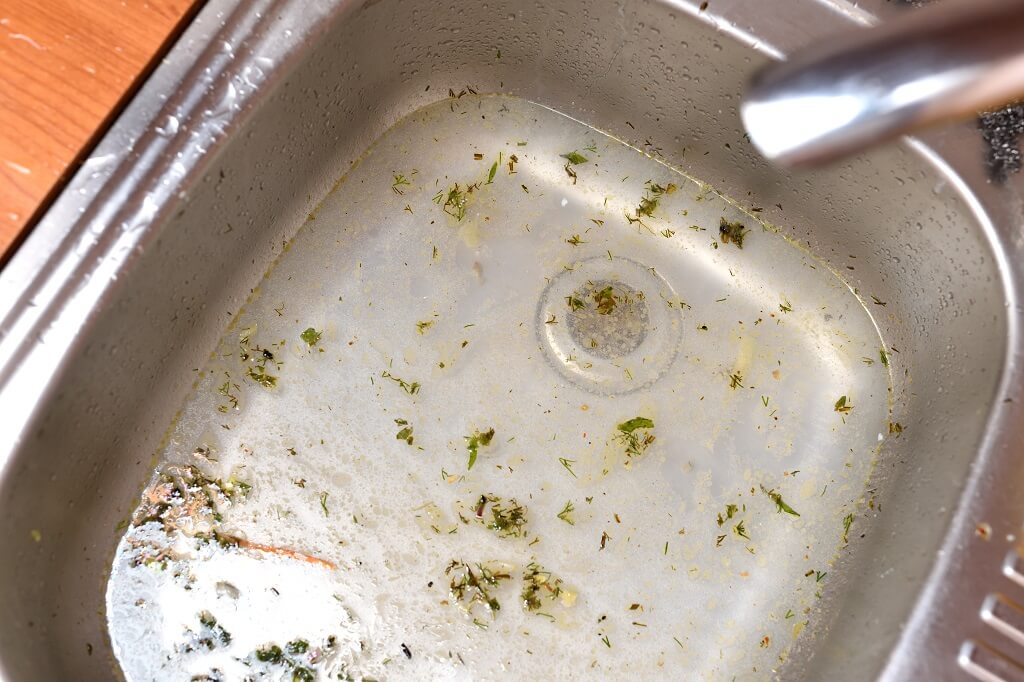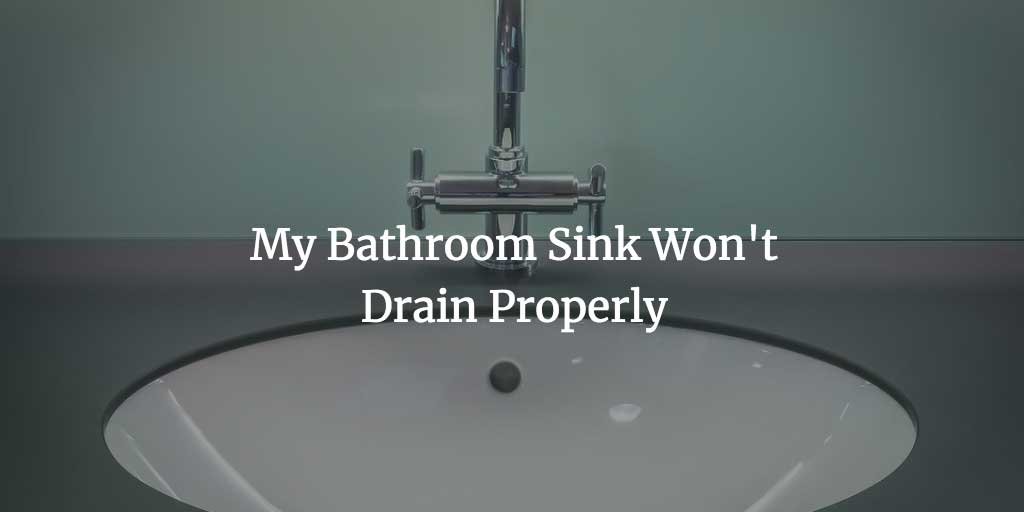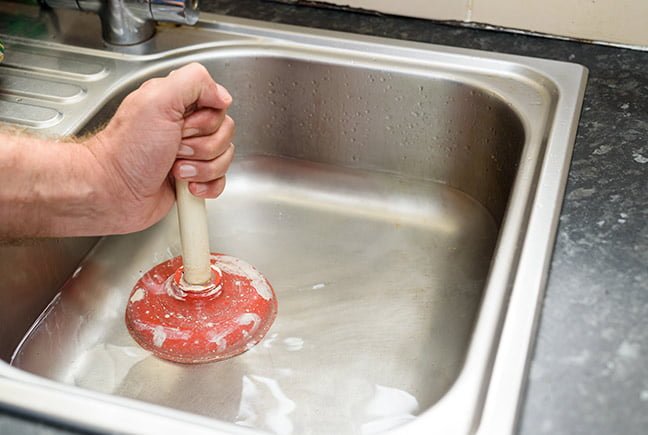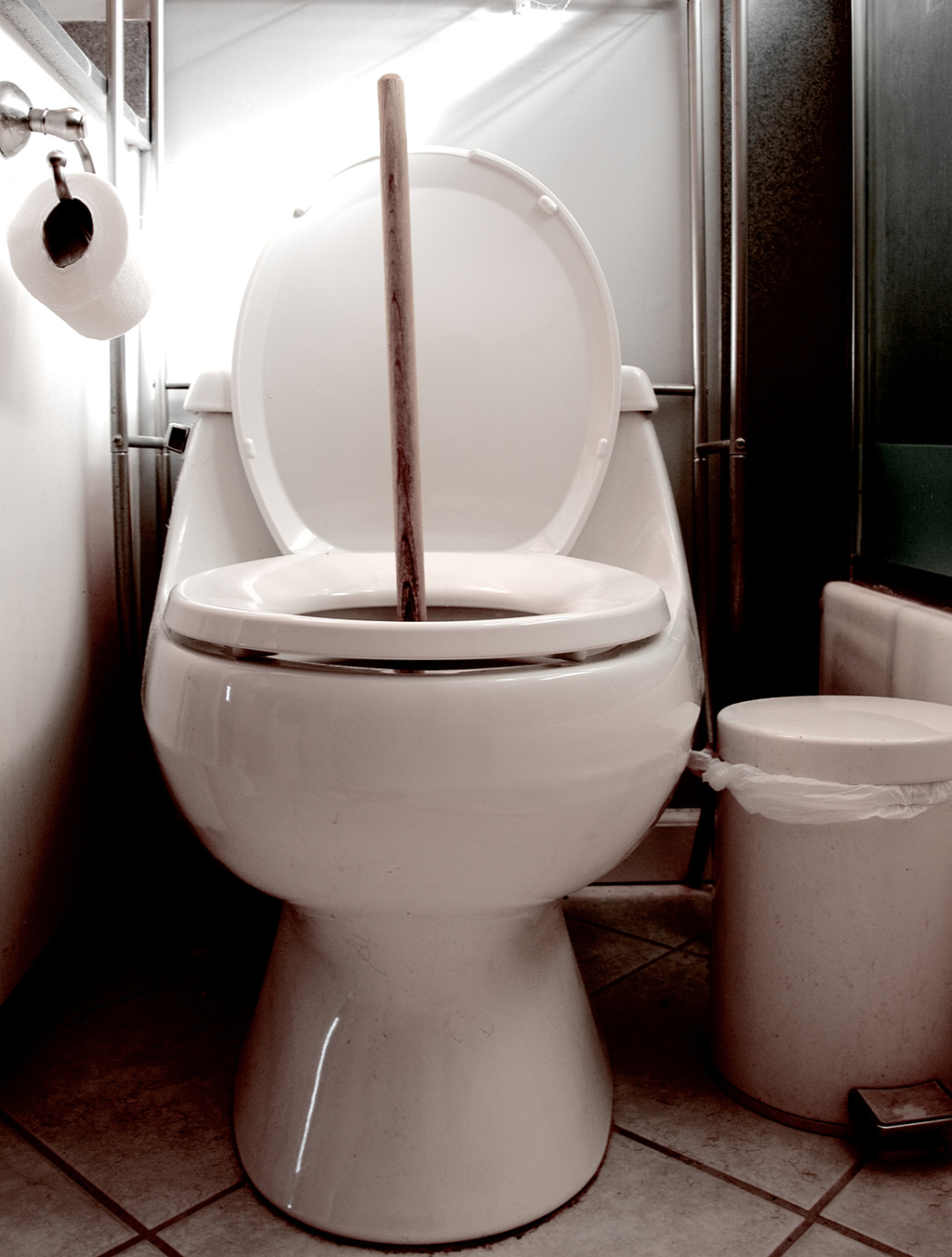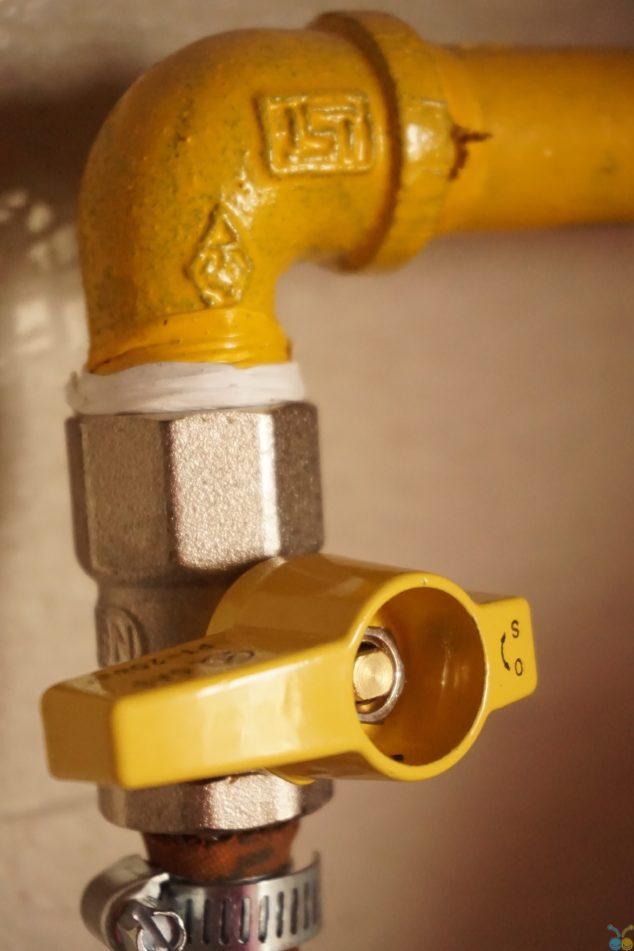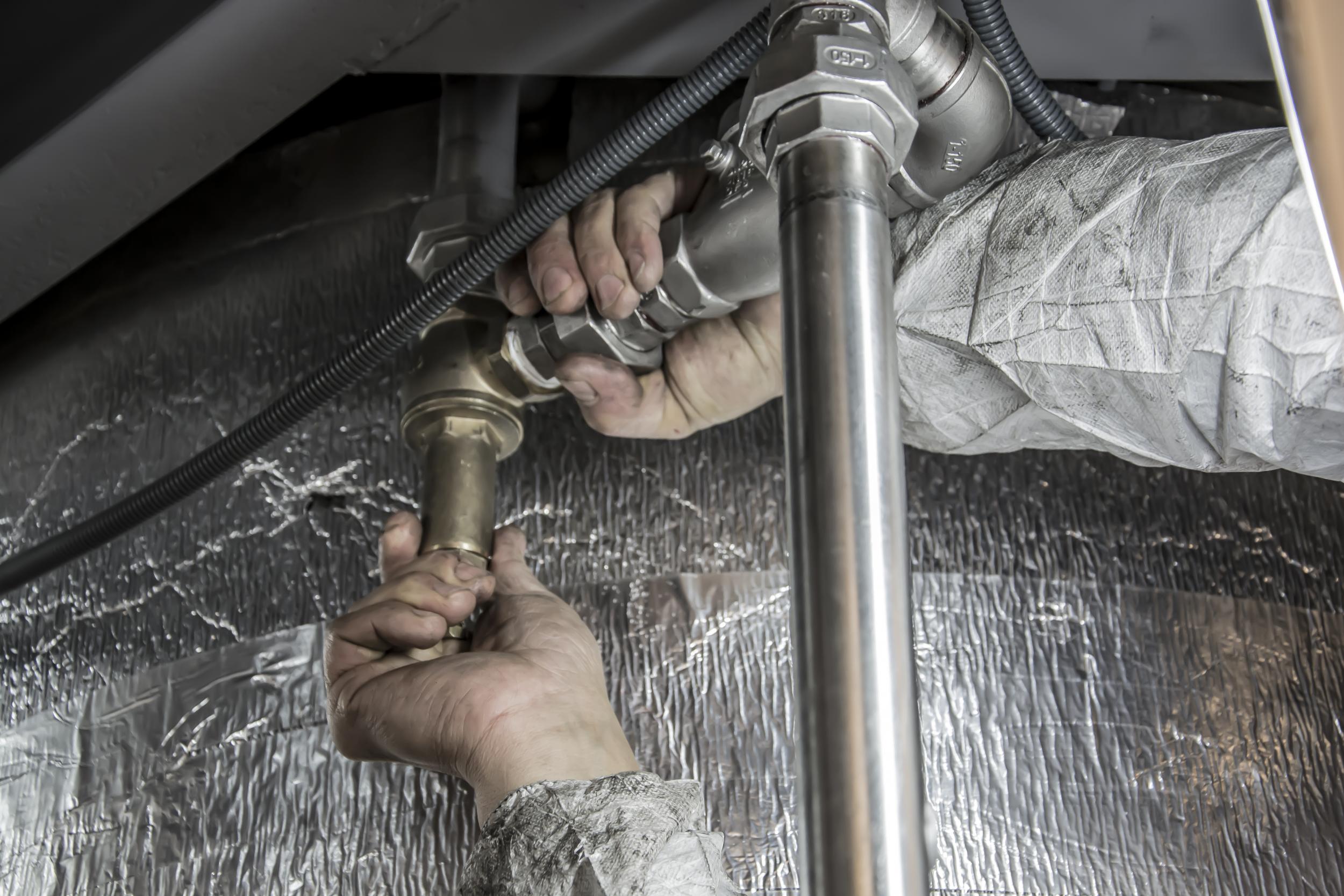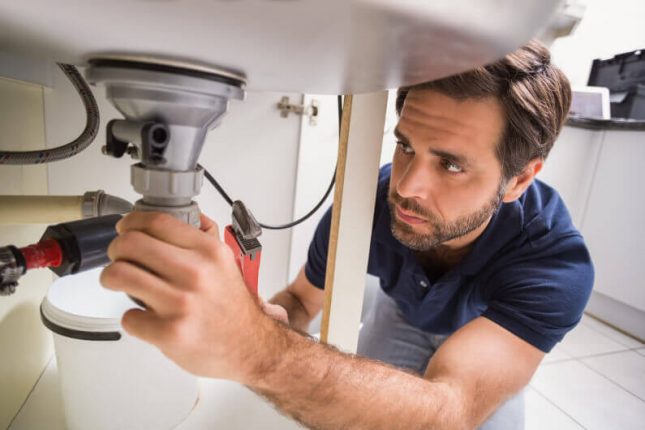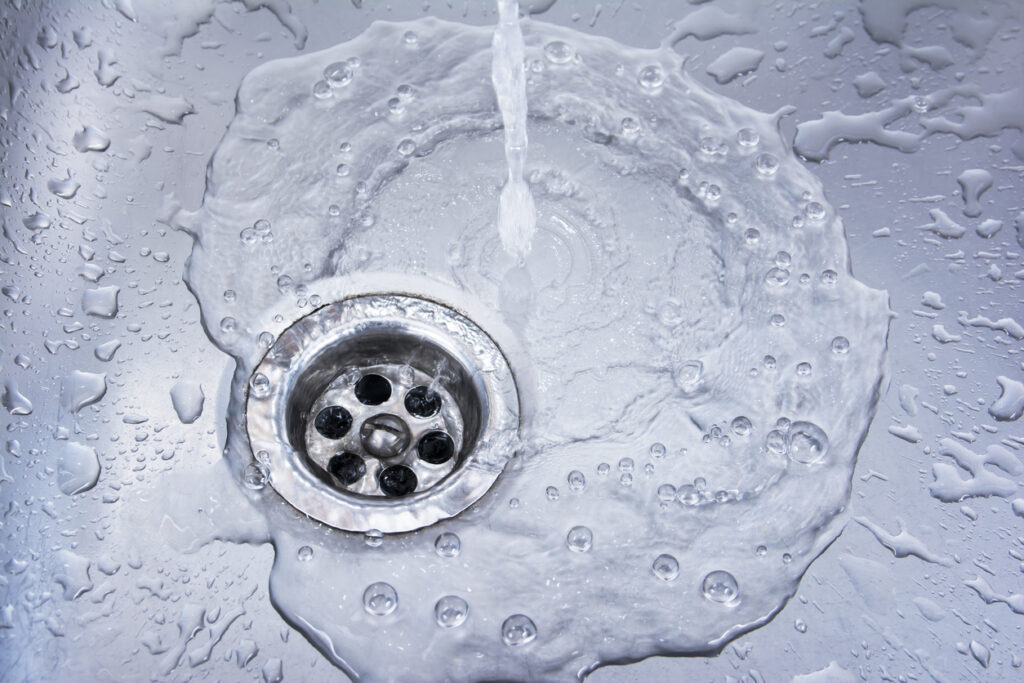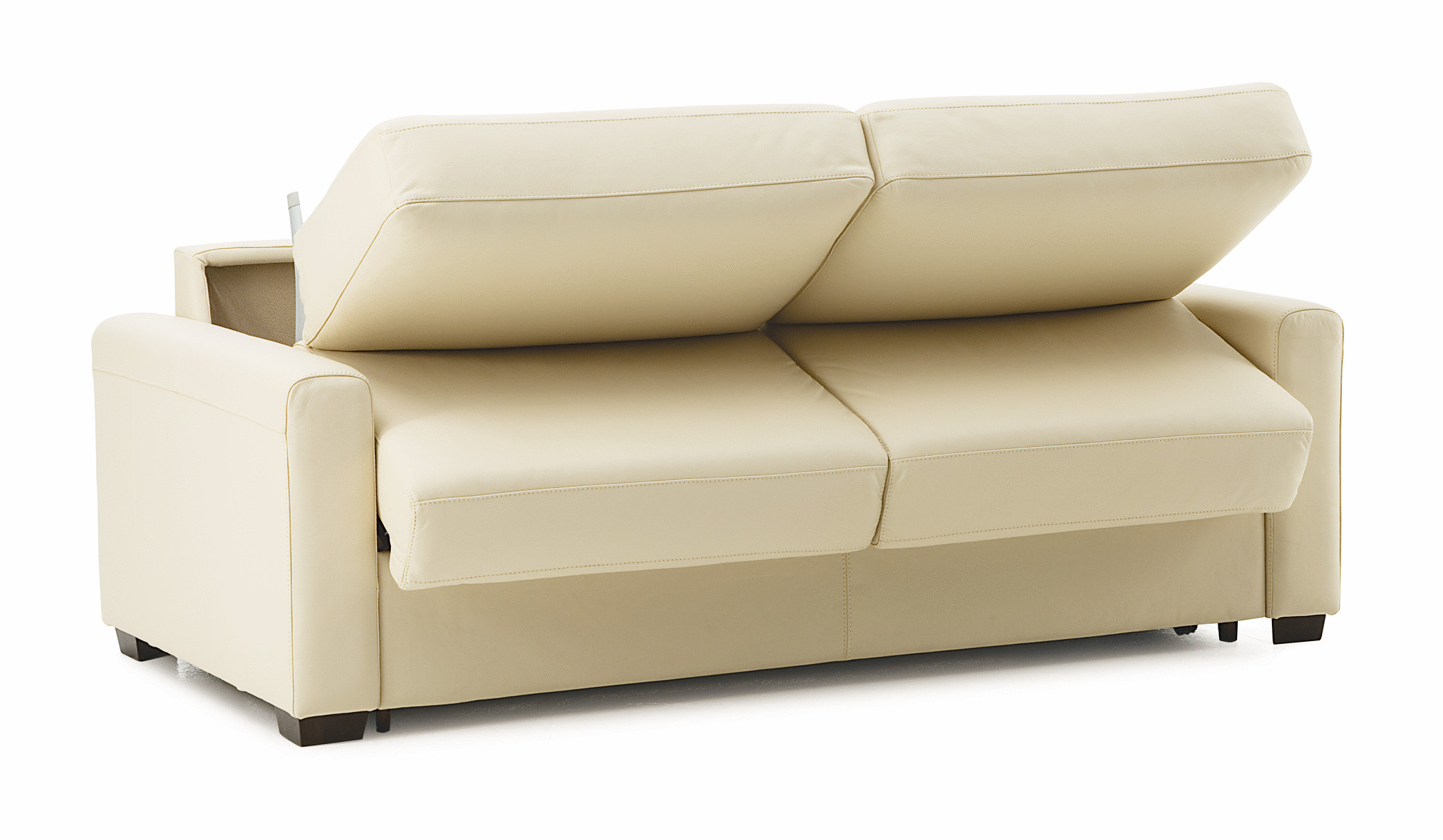Dealing with a slow draining kitchen sink can be frustrating and inconvenient. Not only does it make washing dishes and preparing meals more difficult, but it can also lead to unpleasant odors and potential plumbing issues. Fortunately, there are several simple solutions you can try to clear a slow draining kitchen sink and get your sink back to its normal flow. If your sink is draining slowly, the first step is to remove any visible debris from the drain. Use a pair of tongs or a small tool to reach down and pull out any food scraps, hair, or other gunk that may be clogging the drain. Once this is done, try running hot water down the drain to see if it has improved. If not, it's time to move on to other methods.1. How to Clear a Slow Draining Kitchen Sink
If the hot water alone didn't do the trick, there are a few DIY solutions you can try to clear a slow draining kitchen sink. One common method is to mix equal parts of baking soda and vinegar and pour it down the drain. Let it sit for 10-15 minutes before flushing it out with hot water. The chemical reaction between the two ingredients can help break down any buildup in the pipes and clear the clog. Another DIY solution is to use a plunger to try and dislodge the clog. Make sure to cover the overflow hole with a wet cloth or use a second plunger to create a seal. Plunge up and down vigorously for a few minutes and then flush the drain with hot water to see if it worked.2. DIY Solutions for a Slow Draining Kitchen Sink
Before attempting to unclog your kitchen sink, it's essential to understand what may have caused the issue in the first place. Some common causes of a slow draining kitchen sink include food scraps, grease buildup, and foreign objects getting stuck in the pipes. If you have a garbage disposal, it could also be a contributing factor if it's not working correctly or hasn't been maintained regularly. Knowing the cause of the clog can help you determine the best method for clearing it and prevent it from happening again in the future.3. Common Causes of a Slow Draining Kitchen Sink
If the DIY solutions didn't work, there are a few tips you can try to unclog a slow draining kitchen sink. One option is to use a plumbing snake or drain auger to break up and remove the clog. You can purchase these tools at a hardware store or rent them from some home improvement stores. Another tip is to use a chemical drain cleaner, but be cautious when using these products. They can be harmful to your pipes and the environment, so it's essential to follow the instructions carefully and use protective gear.4. Tips for Unclogging a Slow Draining Kitchen Sink
If you prefer to use natural remedies, there are a few options you can try to clear a slow draining kitchen sink. One is to mix a cup of salt with a cup of baking soda and pour it down the drain. Follow it up with a pot of boiling water and let it sit for a few minutes before flushing with hot water. You can also try pouring a pot of boiling water mixed with a cup of white vinegar down the drain. The combination of heat and acidity can help break down any buildup and clear the clog.5. Natural Remedies for a Slow Draining Kitchen Sink
If none of the above methods work, it may be time to call in a professional plumber. They have specialized tools and equipment that can effectively clear even the toughest clogs. They can also inspect your pipes and identify any underlying issues that may be causing the slow draining. Professional methods may include using a hydro jet to blast high-pressure water through the pipes, or a sewer camera to identify the exact location and cause of the clog.6. Professional Methods for Clearing a Slow Draining Kitchen Sink
Once you've successfully cleared a slow draining kitchen sink, you'll want to take steps to prevent it from happening again in the future. One way to do this is to install a drain strainer to catch food scraps and other debris before they go down the drain. Regularly cleaning and maintaining your garbage disposal can also help prevent clogs. Be mindful of what you put down your sink and try to avoid pouring grease, oil, and other liquids that can solidify down the drain. Also, avoid flushing items like coffee grounds, eggshells, and fibrous foods that can get stuck in the pipes.7. Preventing a Slow Draining Kitchen Sink in the Future
If you decide to tackle a slow draining kitchen sink yourself, there are a few tools you'll need to get the job done. These include a plunger, a plumbing snake or drain auger, a bucket, and protective gear like gloves and goggles if you're using chemical cleaners. It's also helpful to have a bucket or container to catch any water that may come out as you're working on the drain.8. Tools You Need to Clear a Slow Draining Kitchen Sink
If your kitchen sink is draining slowly, it's a clear sign that there is a clog somewhere in the pipes. Other signs that your kitchen sink drain may be clogged include gurgling sounds, unpleasant odors, and water backing up into the sink or dishwasher. If you notice any of these signs, it's essential to address the issue promptly to prevent it from getting worse.9. How to Tell if Your Kitchen Sink Drain is Clogged
In most cases, you can clear a slow draining kitchen sink with DIY methods or professional help. However, there are some signs that you should call a plumber right away. These include multiple drains in your home backing up, foul smells coming from your sink, or water pooling around the sink area. These could be indications of a more severe plumbing issue that needs immediate attention. By following these tips and methods, you can effectively clear a slow draining kitchen sink and keep it running smoothly in the future. Remember to take preventative measures and address any clogs promptly to avoid more significant plumbing problems down the road.10. Signs You Need to Call a Plumber for a Slow Draining Kitchen Sink
Why is a Slow Draining Kitchen Sink a Common Problem?

Causes of Slow Draining Kitchen Sink
 A slow draining kitchen sink is a common issue that many homeowners face. It can be caused by a variety of factors, including clogged pipes, buildup of food particles and grease, and even problems with the plumbing system. Over time, these factors can lead to a slow draining sink, which can be frustrating and inconvenient. Not only does it make washing dishes and cleaning up after meals more difficult, but it can also lead to foul odors and potential damage to your plumbing system.
A slow draining kitchen sink is a common issue that many homeowners face. It can be caused by a variety of factors, including clogged pipes, buildup of food particles and grease, and even problems with the plumbing system. Over time, these factors can lead to a slow draining sink, which can be frustrating and inconvenient. Not only does it make washing dishes and cleaning up after meals more difficult, but it can also lead to foul odors and potential damage to your plumbing system.
The Importance of Clearing a Slow Draining Kitchen Sink
 Clearing a slow draining kitchen sink is not just about convenience, it is also important for maintaining the overall health and functionality of your kitchen. A clogged or slow draining sink can lead to stagnant water, which is a breeding ground for bacteria and mold. This can not only cause unpleasant odors, but it can also be a health hazard for you and your family. In addition, a slow draining sink can put added strain on your pipes and potentially lead to costly repairs in the future.
Clearing a slow draining kitchen sink is not just about convenience, it is also important for maintaining the overall health and functionality of your kitchen. A clogged or slow draining sink can lead to stagnant water, which is a breeding ground for bacteria and mold. This can not only cause unpleasant odors, but it can also be a health hazard for you and your family. In addition, a slow draining sink can put added strain on your pipes and potentially lead to costly repairs in the future.
How to Clear a Slow Draining Kitchen Sink
 Now that we understand the importance of clearing a slow draining kitchen sink, let's discuss some practical solutions. The first step is to try using a plunger to dislodge any clogs in the pipes. If this doesn't work, you can try using a mixture of hot water, baking soda, and vinegar to break up any buildup in the pipes. If these DIY methods don't work, it may be time to call in a professional plumber, who can use specialized tools to clear the clog and ensure that your sink is draining properly.
Now that we understand the importance of clearing a slow draining kitchen sink, let's discuss some practical solutions. The first step is to try using a plunger to dislodge any clogs in the pipes. If this doesn't work, you can try using a mixture of hot water, baking soda, and vinegar to break up any buildup in the pipes. If these DIY methods don't work, it may be time to call in a professional plumber, who can use specialized tools to clear the clog and ensure that your sink is draining properly.
Preventing Future Problems
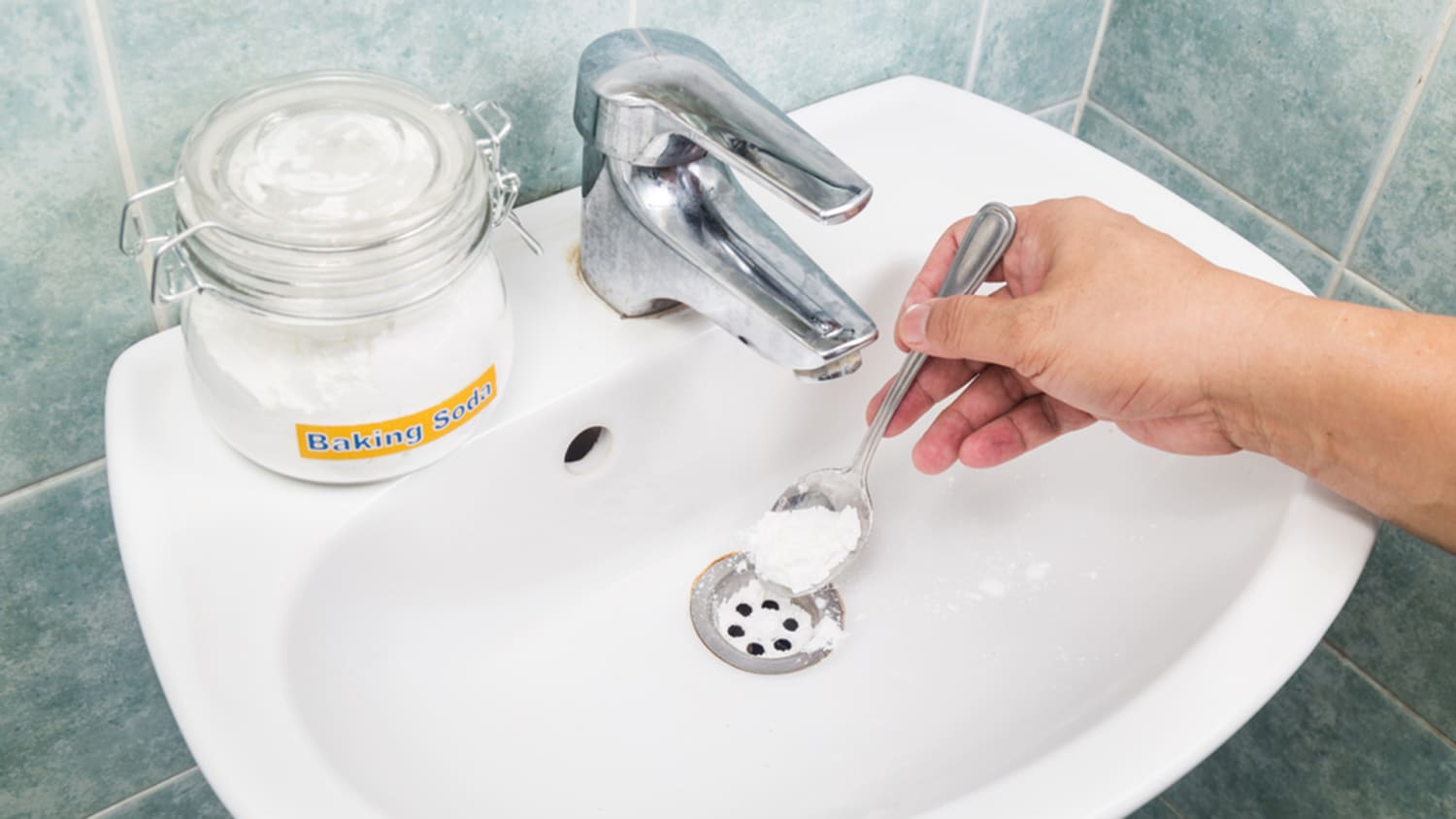 Once you have successfully cleared your slow draining kitchen sink, it's important to take preventative measures to avoid future issues. This includes being mindful of what you put down your sink, such as avoiding pouring grease or large food particles down the drain. Regularly using a drain cleaner can also help prevent buildup and keep your sink draining smoothly. It's also a good idea to schedule regular maintenance check-ups with a plumber to catch any potential problems before they become major issues.
In Conclusion
, a slow draining kitchen sink may seem like a minor inconvenience, but it can actually be a symptom of larger plumbing issues. By understanding the causes of a slow draining sink, the importance of clearing it, and how to prevent future problems, you can keep your kitchen functioning properly and maintain a healthy home. Don't let a slow draining sink slow you down, take action and enjoy a clean and efficient kitchen.
Once you have successfully cleared your slow draining kitchen sink, it's important to take preventative measures to avoid future issues. This includes being mindful of what you put down your sink, such as avoiding pouring grease or large food particles down the drain. Regularly using a drain cleaner can also help prevent buildup and keep your sink draining smoothly. It's also a good idea to schedule regular maintenance check-ups with a plumber to catch any potential problems before they become major issues.
In Conclusion
, a slow draining kitchen sink may seem like a minor inconvenience, but it can actually be a symptom of larger plumbing issues. By understanding the causes of a slow draining sink, the importance of clearing it, and how to prevent future problems, you can keep your kitchen functioning properly and maintain a healthy home. Don't let a slow draining sink slow you down, take action and enjoy a clean and efficient kitchen.




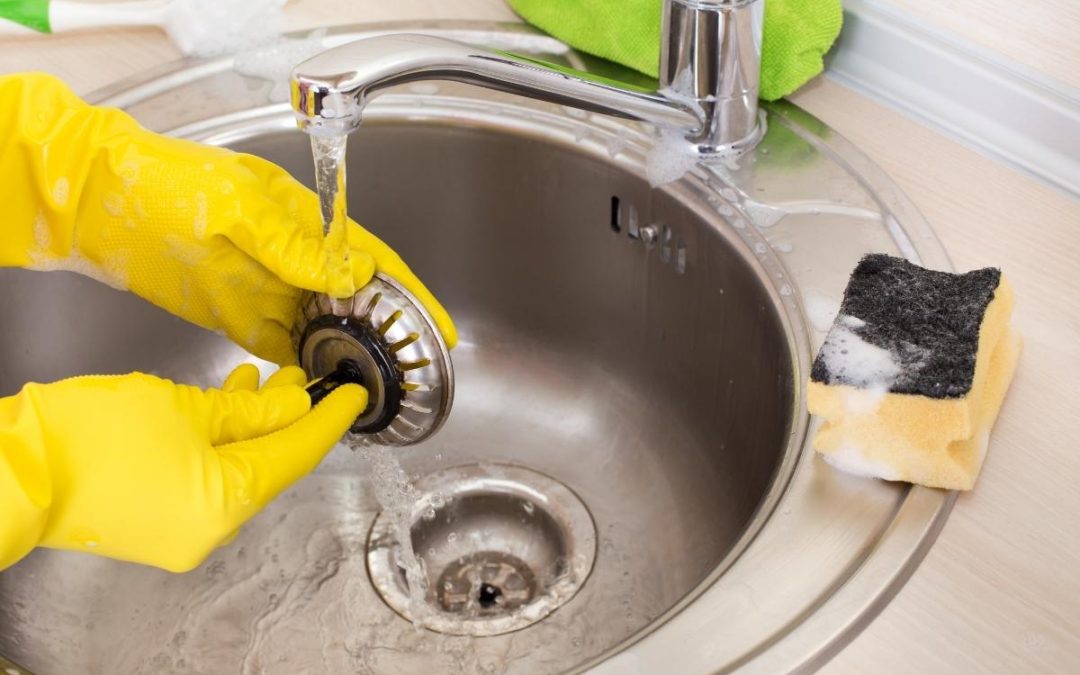


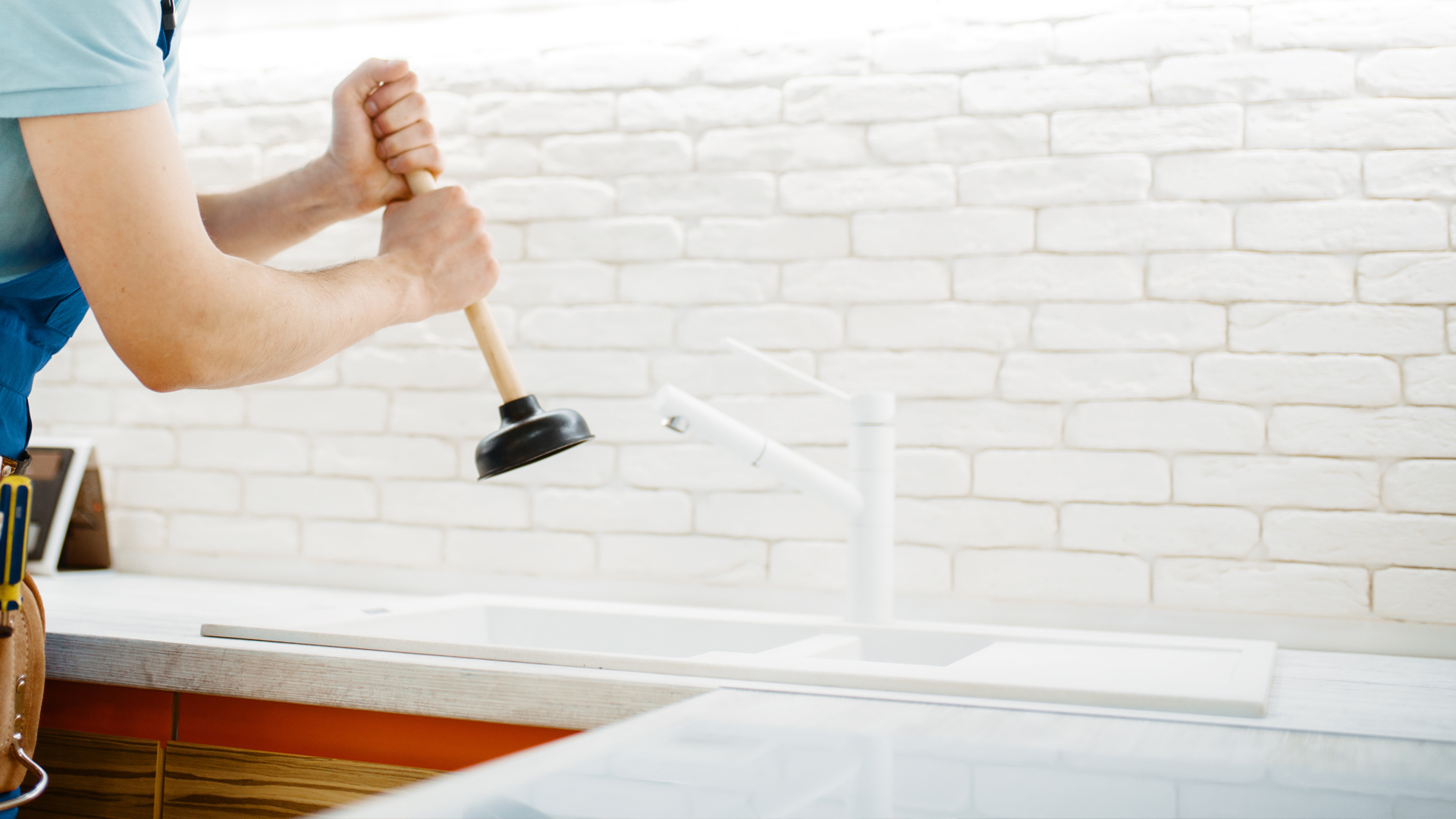





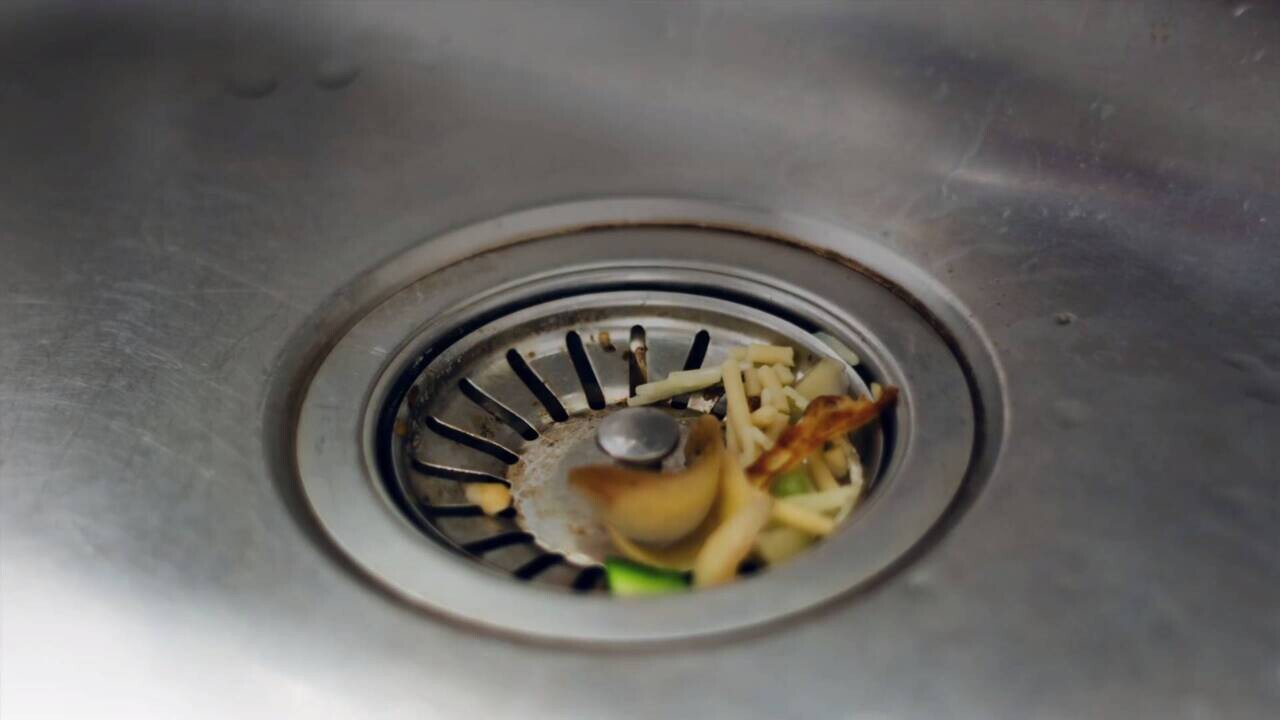
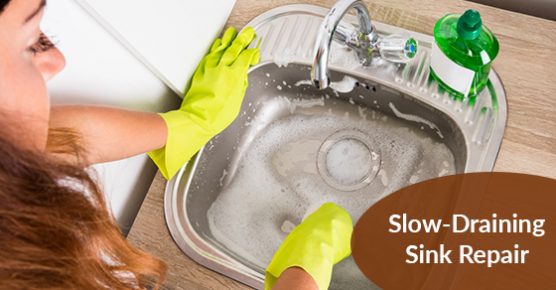













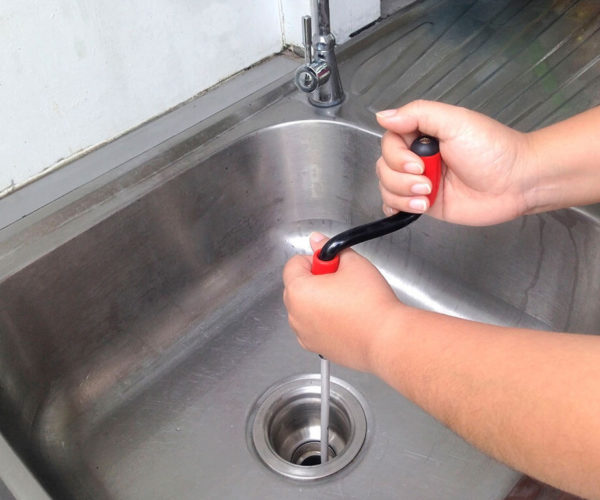
:max_bytes(150000):strip_icc()/freshen-and-unclog-drain-with-baking-soda-1900466-22-bbf940b70afa4d5abef0c54da23b1d3f.jpg)

